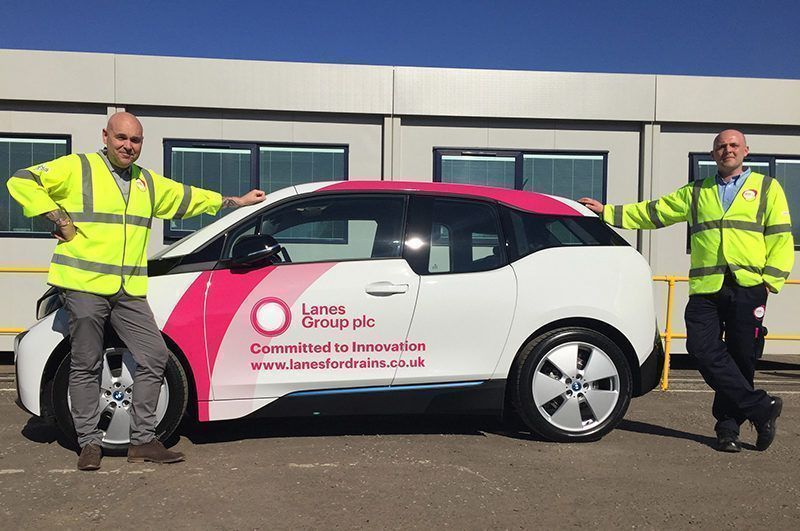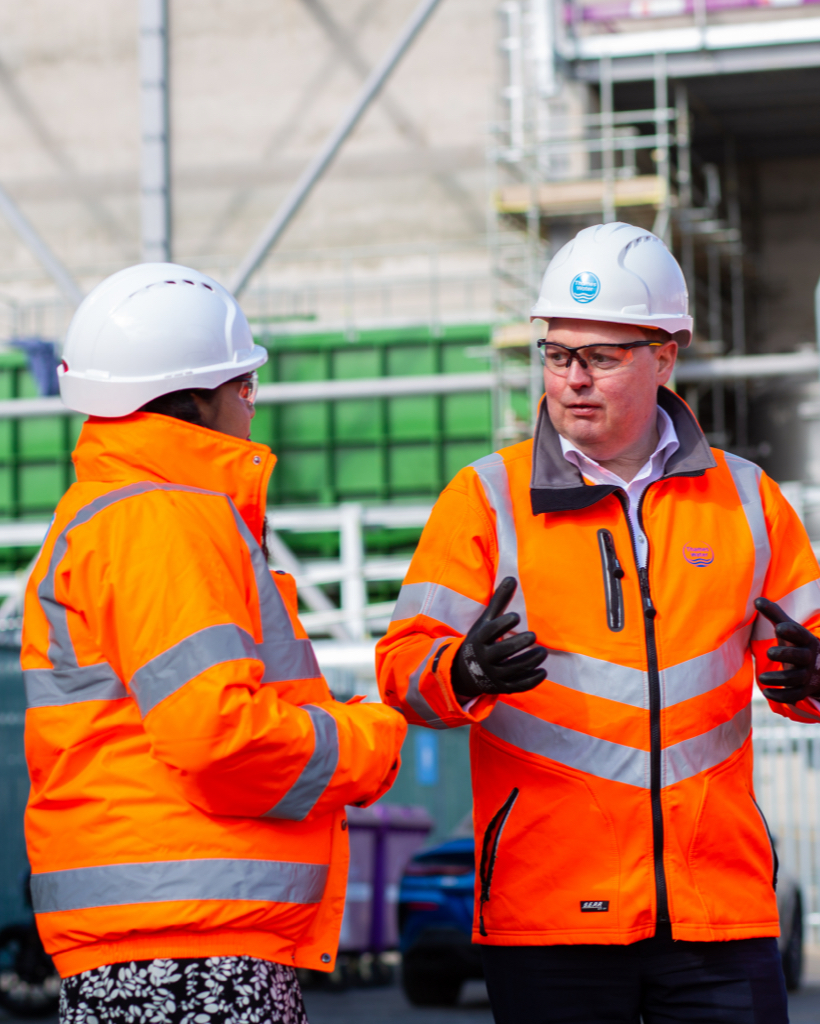Lanes in electric car first for sustainable drainage service

In the pink with a green car, Regional Manager Stevie Fairbairn, left, hands over the BMW i3 to Operations Supervisor Andy McCormack.
Lanes Group plc has taken delivery of its first electric car to support its strategy of delivering sustainable utility wastewater and drainage services.
It now has a BMW i3 to support its front-line teams – with supervising staff using it to visit worksites and attend client meetings.
The electric car, sporting eye-catching Lanes livery, has been contract hired by Lanes Scotland, for use in and around Glasgow. A second car is on order to operate in Edinburgh.
Lanes Scotland Director Kevin Moon said: “We believe this is the first example of a drainage contractor using an electric car operationally, certainly in Scotland, and maybe in the UK.
“We want our services to be as sustainable as possible, and reducing the carbon footprint within supply chains is certainly a key concern of many of our clients.
“Having the BMW i3 in our fleet, and hopefully more of them in the future, is a very visible message to our clients and the wider public that we take concerns about vehicle pollution and climate change seriously.”
Lanes Group, the UK’s largest independent drainage specialist, operates three depots in Scotland, in Glasgow, Edinburgh and Aberdeen.
The BMW i3 has a range of 120 miles on one charge, with a back-up petrol engine that extends the range for a further 80 miles, if it is needed.
It will be used by Lanes Operations Supervisor Andy McCormack to carry out a range of duties, including visiting worksites to scope, risk assess and audit projects, as well delivering additional materials and tools.
Kevin Moon said: “We expect the i3 to be truly sustainable, as it reduces our carbon footprint and will save us money on fuel and road tax costs, allowing us to make our services even more cost-effective.
“We have a large fleet of specialist drainage vehicles, so we are acutely aware of our need to take sustainability seriously. We need to always look at what we can do differently.
“Using electric vehicles to support front-line teams is one way we can do that. It will also give us insights that we can use to take the lead and innovative further as electric vehicle technology develops.”







